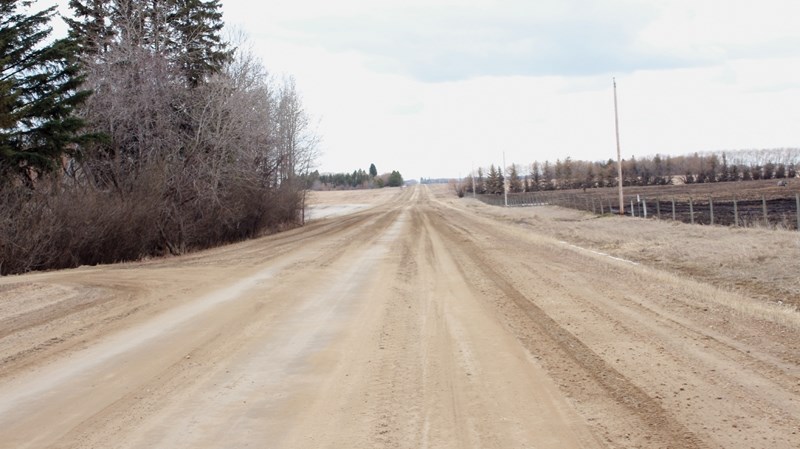A wetter-than-usual spring is causing Westlock County council to discuss the possibility of activating a road ban bylaw in response to the wet weather conditions leaving county roads in rough shape.
Council couldn’t agree on implementing a ban during its regular meeting April 25 and no decision was made.
“I have received numerous phone calls from ratepayers inquiring about the possibility of initiating road bans in the county,” said director of Infrastructure Al Scott. “The past practice has been to not initiate road bans on county gravel roads.”
Scott noted that the county had passed a bylaw in 2012 authorizing it to create road bans if needed. He pointed out that the county already had scales for weighing equipment, though the county peace officer would need to be trained in their use and the training would not be available until later in the year.
Coun. Ron Zadunayski pointed out that the bylaw automatically brings road bans into effect March 1, but they’re not enforced at the discretion of council.
“If there’s an issue, we can get in contact with the person and discuss it with them,” he said.
“The previous council never sent our bylaw officer for training because we didn’t feel that we wanted to enforce it. But we can if we need to.”
Coun. Bud Massey argued for road bans and asked why road ban information was removed from the county’s website.
“Our roads are in bad shape right now,” he said. “We had a bad summer, we had a bad fall and we have a bad spring.”
However, the idea of enforcing road bans struck a nerve with some of the councillors, who argued that the county needed to rely on its ratepayers to use caution.
“Just because a truck is going down the road doesn’t mean it’s overloaded or underloaded,” said Coun. Ray Marquette. “In most counties, the ratepayers use their discretion. Most people use common sense.”
Others questioned how much the county could actually rely on people to make the proper decision.
“How do you weed out the ones who don’t use common sense?” asked Coun. Mel Kroestch. “Three times this spring I’ve passed trucks that have made ruts as they went by me.”
Scott noted that the first part of the process was making sure drivers were aware of the problem.
He added that he county has run advertisements in the Westlock News for the past several weeks, asking drivers to be mindful of road conditions.
He also said that while education was the first tool in the county’s toolbox, unless the county was prepared to enforce a road ban there was not much administration could do.
“Enforcement needs to be looked at as a component of an overall strategy,” he said.
“Unfortunately, as with anything, if they’re not enforced, what’s the point? It’s going to keep the honest guys honest, but if there’s people out there that don’t use their discretion, or don’t care about the roads or think that it’s somebody else’s problem, without the enforcement part of that it’s just lip service.”
Reeve Don Savage pointed out that ratepayers often report issues to administration and enforcement could be handled on a case-by-case basis.
“We get here every spring and roads become a big issue,” he said. “It’s been the worst year we’ve had. We have a public out there that reports something immediately. In general, people don’t want the roads cut up and they will report it to us.”
However, he said he didn’t want the county to be seen as interfering with business operations in the county.
“Feed’s got to get in cattle and the milk’s got to get out,” he said. “You can’t stop that.”



